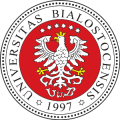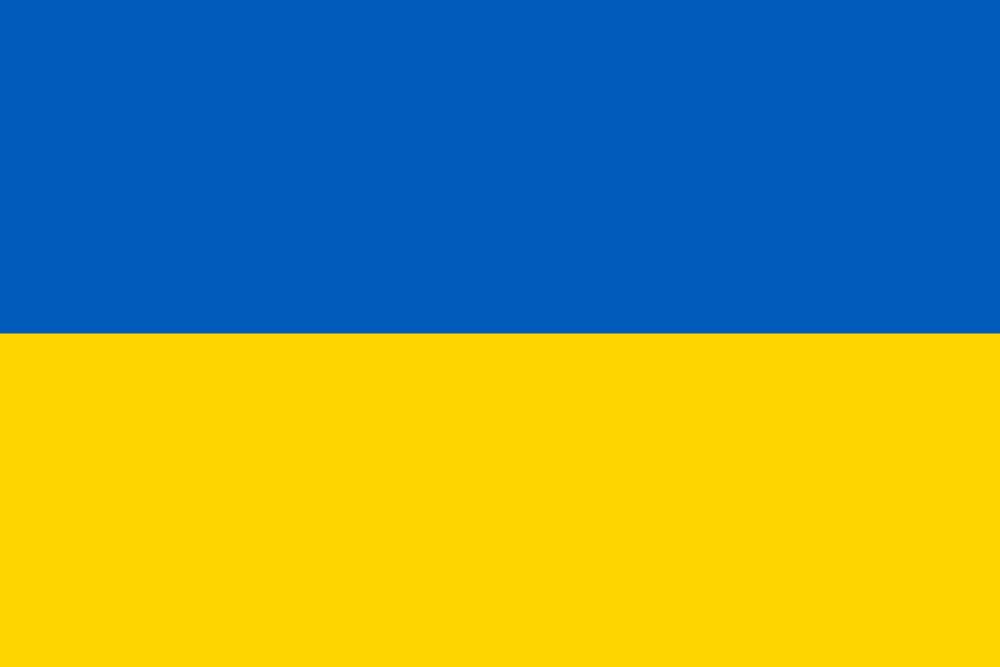Job Offer Announcement.
The project
Extended microbiome characterization by the exploitation of the microbial intra-community synergies — towards better understanding of the Exposome
In recent years the more focus has been placed on human exposome and how it affects human health and well-being. Exposome understood as the set of human environmental exposures (complementing the genome) from conception onward includes: a general external environment, a specific external environment, and internal environment factors. In all three categories, an alive part of the exposome are different microbiomes, e.g. urban microbiome, skin microbiome, gut microbiome.
There are many efforts around the world to pursue the knowledge behind many different types of microbiomes and to extract the information directly from metagenomes. Projects such as MetaHIT, Human Microbiome Project or American Gut Project/Microsetta Initiative had led to the growth of information about plenty of gut connected diseases such as obesity, inflammatory bowel syndrome or ulcerative colitis. Similar insight has been gained by projects focused on skin microbiota (The Human Skin Microbiome Project), environmental microbiome (Earth Microbiome Project), urban and subway microbiomes (MetaSUB International Consortium), and many more. However, only a few of them had also considered establishing interactions between microorganisms among themselves, with the environment, and with human beings as one of the main goals.
Microbiomes are diverse, dynamic, and complex parts of exposomes that are crucial for determining health. The composition of these biomes by nature is strongly related to the ecological niche they occupy and thus synergies and anergies are here dominant factors. Thus, the goal of the project is to extend our knowledge about interactions within and between features that arise in three complementary views on the microbiome: view through the lenses of compositional/taxonomical profile (i.e., abundance of microbial species), view through the lenses of functionalities related to the phenomena under scrutiny and view using variables derived directly from the samples (i.e., sequences obtained from a sample). Where in the last view no prior knowledge of microbial genomes and sequences of functional proteins are used.
In particular, we want to explore synergistic interactions between features and by this go beyond currently available approaches that are ill-fitted to analyse metagenomic data as they are not exploiting the existence of these relations.
Specifically, we will investigate synergies in three exposome related use-cases:
• Anomaly detection in microbiomes – identification of resistomes for AMR studies,
• Patient stratification – usage of microbiota profiles for establishing health status of the patient,
• Calculation of distances between microbiomes – prediction of the geographical origin of the sample.
The proposed type of analysis in the context of selected use-cases can lead to the discovery of new functionalities or new species that are relevant for the interesting phenomena.
The role
The tools we are going to use in the search of synergies are based on Multi Dimensional Feature Selection (MDFS) framework, developed by our team at the University of Białystok. MDFS is currently a statistical filter, aimed on identification of all the relevant features, that influence the response variable via multivariate interactions. It uses information measure of interactions to compute the test statistic. The computations are performed exhaustively for all the k-tuples of features, using GPU for better performance.
The first task for our team is adaptation of the MDFS software to microbiome analysis. This involves both programmer’s work, like handling the bigger amount of data, as well as pure statistical problems, like defining a significance criterion for synergistic interactions. New tools for exploration of the cluster structure of the data with respect to particular response variables will also be needed for our analyses.
The developed tools will be used to analyse data sets, coming from our partners at Jagiellonian University. Our task will involve identification of relevant features at three levels: taxonomical profiles, functionalities and genetic sequences, then finding all the interesting synergistic interactions between the variables. We will also explore the network or cluster structure of the data to obtain a deeper view into the human microbiome.
Skills/Qualifications
Requirements:
• PhD degree, preferably in computer science/mathematics/natural sciences/engineering;
• good practical programming skills, preferably in C/C++ and R;
• relevant knowledge in statistics;
• ability to understand scientific papers and to communicate scientific results in English.
Desirable qualifications:
• experience in machine learning techniques,
• experience in CUDA technology,
• experience in big data handling,
• experience in bioinformatics,
• knowledge about metagenomics.
PLEASE NOTE:
Due to NCN regulations we are not allowed to hire postdocs who obtained their PhDs at the University of Białystok, nor earlier than 7 years ago. More formal details can be found at https://www2.ncn.gov.pl/sites/default/files/pliki/uchwaly-rady/2020/uchwala61_2020-zal1.pdf, pages 35-36. For more information or to share your opinion, please contact the agency via e-mail: kancelaria@ncn.gov.pl.
We offer
• full-time employment from 01.03.2022 to 30.06.2025
• remuneration at the rates applicable to projects financed by the NCN for post-doc (i.e. 120 000 PLN per annum, total employment costs).
• opportunity to collaborate with world-class researchers from Jagiellonian University and University of Białystok, as well as institutions such as Weill Cornell Medicine, ETH Zurich, Acibadem University, East China Normal University
• scientific and professional mentorship,
• position 100% focused on research and development (no compulsory teaching),
• opportunity to work on an ambitious and important scientific problem with interdisciplinary applications,
• opportunity and support to participate scientific meetings across the globe,
• flexible working time,
• opportunity to work (partly) remotely.
How to inquire
Please send an email to k.mnich@uwb.edu.pl (in email title please include “SONATA BIS Research Associate” and your first and last names) with documents as specified below before 31th of January 2022.
List of documents:
• application form,
• CV including information on the candidate’s scientific, teaching and organisational achievements, list of publications etc,
• copy of the doctoral diploma,
• information regarding processing of personal data,
Projekt
Uniwersyteckie Centrum Obliczeniowe , ul. K. Ciołkowskiego 1M, 15-245 Białystok tel. 48 85 738 83 50
Oferta zatrudnienia na stanowisko Post-doc w projekcie badawczym pt: „Rozszerzona charakteryzacja mikrobiomu z wykorzystaniem synergii wewnętrznych społeczności mikrobiomowej dla lepszego zrozumienia Ekspozomu”
Nazwa jednostki: Uniwersyteckie Centrum Obliczeniowe, Uniwersytet w Białymstoku
Typ konkursu NCN: SONATA BIS – 10 (Narodowe Centrum Nauki)
Termin składania ofert: 17.06.2022r.
Forma składania ofert: e-mailowo na adres: k.mnich@uwb.edu.pl
Warunki zatrudnienia:
Miejsce pracy: Uniwersyteckie Centrum Obliczeniowe, Uniwersytet w Białymstoku
Okres trwania zatrudnienia: 34 miesiące
Data rozpoczęcia zatrudnienia: 01.09.2022r.
Wynagrodzenie: 10 000zł /miesiąc (kwota ta zawiera pozapłacowe koszty pracy, w tym składki na ubezpieczenie społeczne i zdrowotne oraz inne elementy wynagrodzenia finansowane przez podmiot zatrudniający. Ze środków tych pokrywane jest także dodatkowe wynagrodzenie roczne („trzynastka”)
Wymagania:
• stopień doktora informatyki, matematyki, nauk przyrodniczych lub technicznych;
• praktyczne umiejętności programowania, zwłaszcza w językach C/C++ i R;
• wiedza specjalistyczna w zakresie statystyki;
• znajomość języka angielskiego w stopniu wystarczającym do korzystania z literatury naukowej i publikowania wyników badań.
Pożądane kwalifikacje:
• doświadczenie w dziedzinie uczenia maszynowego,
• znajomość technologii CUDA,
• umiejętności w dziedzinie przetwarzania dużych zbiorów danych,
• kontakt zawodowy z bioinformatyką,
• wiedza w zakresie metagenomiki.
Opis zadań:
Stanowisko w ramach projektu NCN pt. „Rozszerzona charakteryzacja mikrobiomu z wykorzystaniem synergii wewnętrznych społeczności mikrobiomowej dla lepszego zrozumienia Ekspozomu ”. Głównym celem projektu jest badanie współzależności między występowaniem różnych mikroorganizmów w środowisku człowieka, zarówno w jego otoczeniu jak i wewnątrz organizmu.
Badania prowadzone są z użyciem zaawansowanych metod analizy danych, zawierających informacje o zidentyfikowanych gatunkach mikroorganizmów, profilach funkcjonalnych oraz o występowaniu poszczególnych fragmentów kodu genetycznego. Podstawowym narzędziem informatycznym do wykonywania analiz jest biblioteka MDFS, rozwijana przez zespół Uniwersytetu w Białymstoku.
Zadaniem pracownika będzie udział w rozwijaniu biblioteki w kierunku przystosowania jej do analiz mikrobiomu i wykrywania synergii. Prace te obejmują zarówno zadania programistyczne jak i teoretyczne opracowania z dziedziny statystyki. Równolegle, wypracowane metody będą stosowane do analiz zbiorów danych, dostarczonych przez zespół z Uniwersytetu Jagiellońskiego i Małopolskiego Centrum Biotechnologii.
Dodatkowe informacje:
W wyznaczonym terminie proszę przesłać e-mailem (w temacie wpisując – Ogłoszenie -post-doc, SONATA BIS – 10) na adres: dr Krzysztof Mnich mail: k.mnich@uwb.edu.pl następujące dokumenty:
• List motywacyjny wraz z opisem zainteresowań naukowych,
• CV uwzględniające ww. oczekiwania (dotychczasowe osiągnięcia w nauce, uzyskane stypendia ew. publikacje, nagrody i wyróżnienia, uczestnictwo w konferencjach, itp.)
• Kopię dokumentu potwierdzającego tytuł naukowy doktora.
Wybrane osoby zostaną indywidualnie zaproszone na rozmowę kwalifikacyjną. Wyniki konkursu zostaną ogłoszone do: 31.06.2022
Zasady oraz tryb przeprowadzania konkursu określa Załącznik nr 2 do Regulaminu przyznawania środków na realizację zadań finansowanych przez Narodowe Centrum Nauki w zakresie projektów badawczych, załączonego do uchwały Rady NCN nr 76/2018 z dnia 6 września 2018r.”
Prosimy o zamieszczenie następującej klauzuli w przesłanej dokumentacji:
„Wyrażam zgodę na przetwarzanie moich danych osobowych, zawartych w ofercie stypendialnej dla potrzeb niezbędnych dla realizacji procesu rekrutacji, zgodnie z Rozporządzeniem Parlamentu Europejskiego i Rady UE 2016/679 z dnia 27 kwietnia 2016 r. w sprawie ochrony osób fizycznych w związku z przetwarzaniem danych osobowych i w sprawie swobodnego przepływu takich danych oraz uchylenia dyrektywy 95/46/WE w ramach realizacji obowiązku prawnego ciążącego na administratorze danych (art.6 ust.1 lit. a ) oraz ustawą z dnia 10 maja 2018 r. o ochronie danych osobowych (Dz.U.2018 poz.1000).
Dane osobowe zawarte w CV, zbierane są i będą przetwarzane wyłącznie w celu rekrutacji na stanowisko określone w ogłoszeniu, prowadzonej przez Uniwersyteckie Centrum Obliczeniowe Uniwersytetu w Białymstoku. Wyrażenie zgody na przetwarzanie danych osobowych, jest dobrowolne, ale konieczne do wzięcia udziału w rekrutacji. Oświadczam, że zostałem/am, poinformowany/a, że mam prawo w dowolnym momencie wycofać zgodę.”
Dodatkowych informacji udziela kierownik projektu:
dr Krzysztof Mnich, mail k.mnich@uwb.edu.pl

